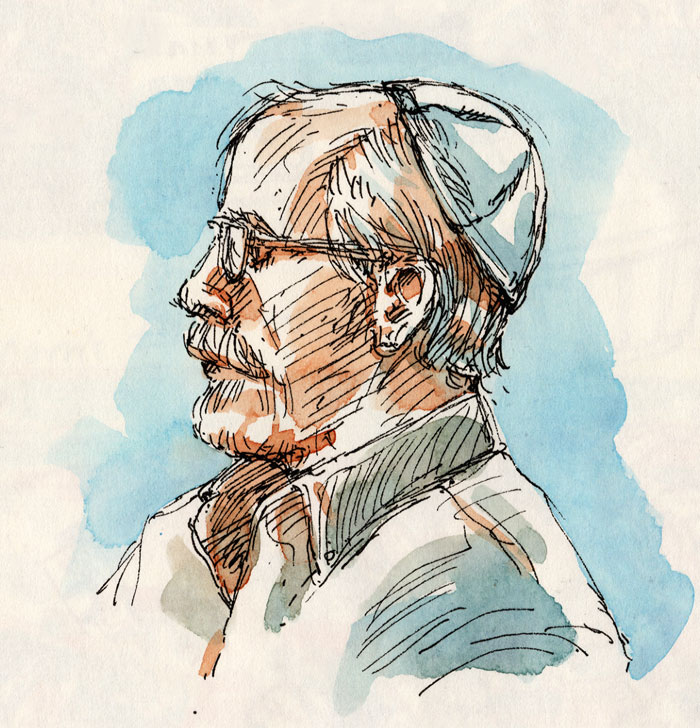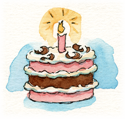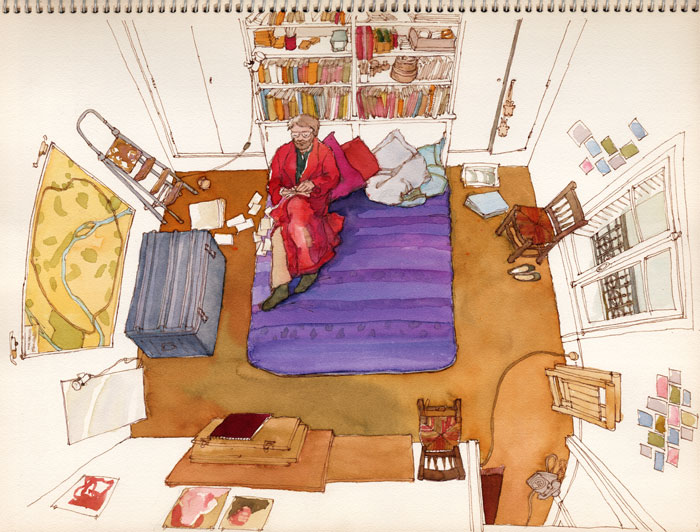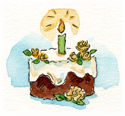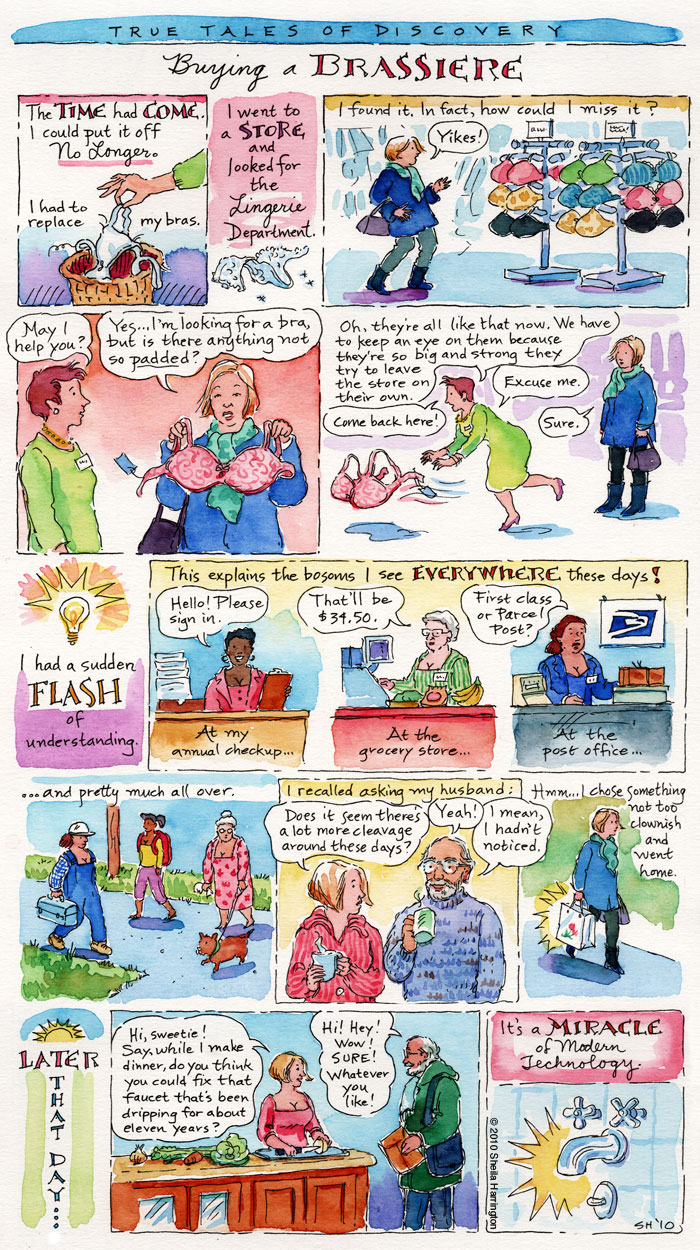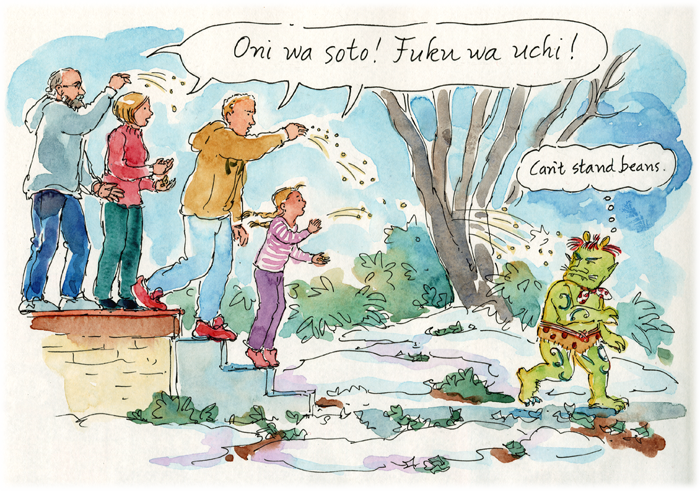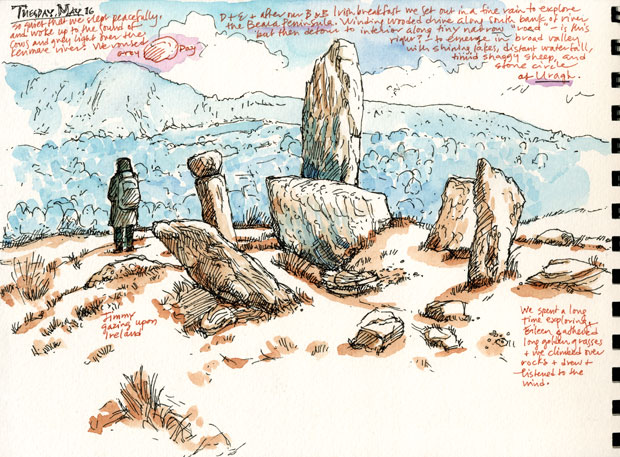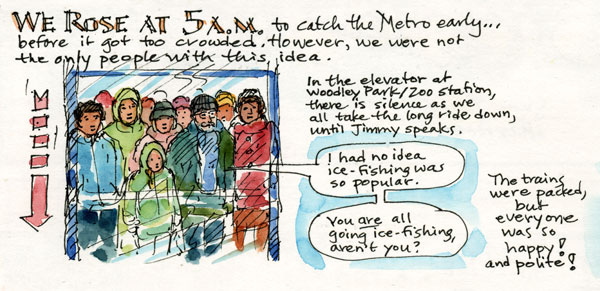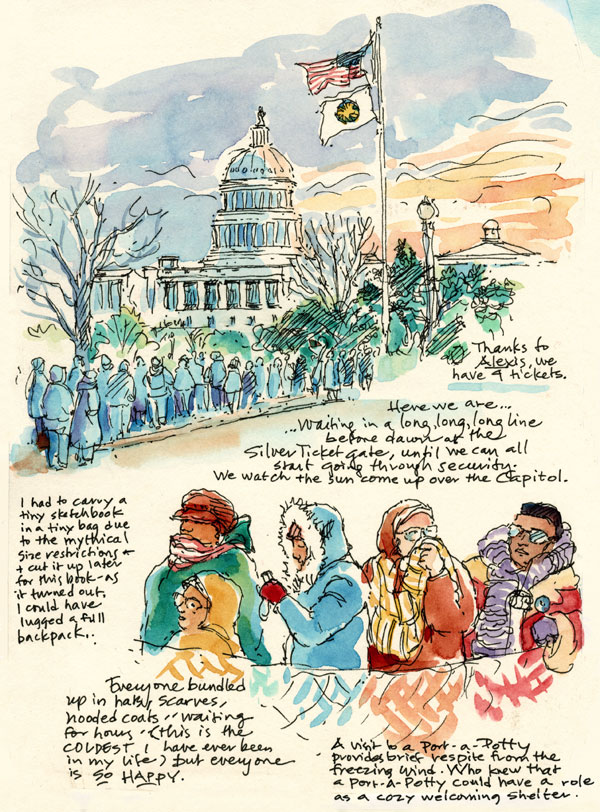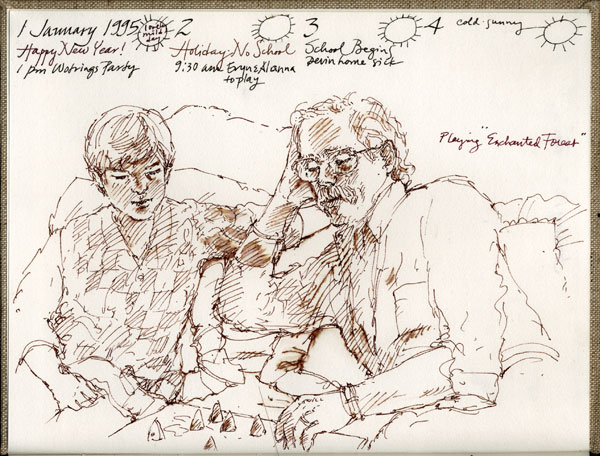My heart leaps up when I behold
A rainbow in the sky.
So was it when my life began;
So is it now I am a man;
So be it when I grow old,
Or let me die!
The Child is father of the Man;
And I could wish my days to be
Bound each to each by natural piety.
—William Wordsworth
(painting is a detail from a larger work, The Age of Reason)
Whenever someone in the family mentions a rainbow, my husband launches into this poem. (It’s now inevitably become a sort of family tradition—wait for it….) And today we celebrate the fortuitous birthday of its author, William Wordsworth (1770-1850), born in Cumberland, England.
Is it obligatory for English poets to have had unhappy childhoods? Wordsworth’s was no exception—his father, mysteriously, lived apart from the family, and when the children’s mother died, instead of taking them in, he parcelled them out between boarding schools and a series of unpleasant misery-inducing relatives. Wordsworth wasn’t reunited with his beloved favorite sister Dorothy for years. The highlight of his dismal schooling (besides introducing him to his future wife) was the holidays, which he consistently spent going long walks in nature and writing poetry.
At twenty Wordsworth set off on a walking tour of Italy, Switzerland, and post-Revolutionary France, where he became a passionate advocate of the republican cause. In France he formed a liaison with a local girl, but the relationship was discouraged by her parents (despite his having fathered a daughter whom he visited and supported rather erratically over the years). He returned home alone, disillusioned by the increasing violence of the revolution and England’s violent response to it, aimless, without profession, depressed.
This dark period was finally relieved by a legacy from Raisley Calvert, a sculptor and loyal former classmate, that allowed Wordsworth to support himself while writing poetry. May we all be so fortunate in our old school friends! With a steady income, he was able to form a household with Dorothy and their mutual friend Samuel Coleridge that Dorothy termed “three persons with one soul.”
It was a creative partnership that marked the birth of English Romanticism. Inspired by one another, Wordsworth and Coleridge produced innovative, experimental, controversial poetry, and Dorothy’s letters (luckily for literary historians) documented the process. Wordsworth defined poetry as “the spontaneous overflow of powerful feelings” but his rapture was borne within measured frameworks, among them the sonnet form, which Wordsworth reawakened after its long disuse. In 1798 they published Lyrical Ballads (“Tintern Abbey,” “The Idiot Boy,” “Rime of the Ancient Mariner”) and Romanticism was up and running.
The Romantic movement emphasized the value of individual experience, the contributions of ethnic traditions and folklore, the primal power of wild landscape and the wonders of nature, a consciousness of the infinite, and the use of imagination and the senses as a path to spiritual truth. It was a break from the formal elegance, polish, dignity and conservative restraint that characterized the formerly hot movement, Neoclassicism. Instead of, say, a series of elevated dramatic couplets on the epic semi-divine hero of ancient tragedy, we have a lyrical meditation on the soul-response to a sea of daffodils, or to the loss of a much-loved child. A personal perspective on life, the natural world, and mortality.
Yes…quite a break! taken up by Blake, Scott, and Göethe, followed by a whole string of younger Romantic poets and writers (Byron, Shelley, Keats, Hugo, Dumas, Pushkin) and the Transcendentalists (Emerson, Thoreau) and later the Victorians (Browning, Tennyson). Where would it end?? Culture as well as politics seems to be an ongoing struggle between the poles of head and heart, with adherents of each movement certain of having achieved a universally valid means of expression. But that is a subject for another post.
The partnership foundered on a falling-out with Coleridge, a pretty gloomy fellow, as one would expect of someone who writes a lengthy baffling poem about a curse-bearing dead albatross. Wordsworth and Dorothy moved on, settling eventually in the beautiful Lake District, that region abundant in literary inspiration and indomitable tourists. Joined by Robert Southey, the two became known as the “Lake Poets,” and Wordsworth married and proceeded to have five children. A sizable household. But a household that, as any other, had its share of suffering, with the drowning of William and Dorothy’s brother, and the deaths of three of the children. Wordsworth’s poetry grew more sober, restrained, and elegiac. In fact in his later years, while serving as England’s poet laureate, he was criticized by younger writers for his increasing conservatism. Suffering and loss does shade and temper youthful abandon.
Even if you can’t recite a Romantic poem in entirety, you know that your head is filled with lovely memorable fragments (“Dear God! the very houses seem asleep; And all that mighty heart is lying still…” “I wandered lonely as a cloud That floats on high o’er vales and hills…” “The Soul that rises with us, our life’s Star, Hath had elsewhere its setting, And cometh from afar…”) that are part of our literary legacy and that emerge in moments of wonder and joy. For the fragments, for the poetry, for the consciousness that shaped them, and for my husband’s regular recital of the rainbow poem, thank you, William Wordsworth, and Happy Birthday.


